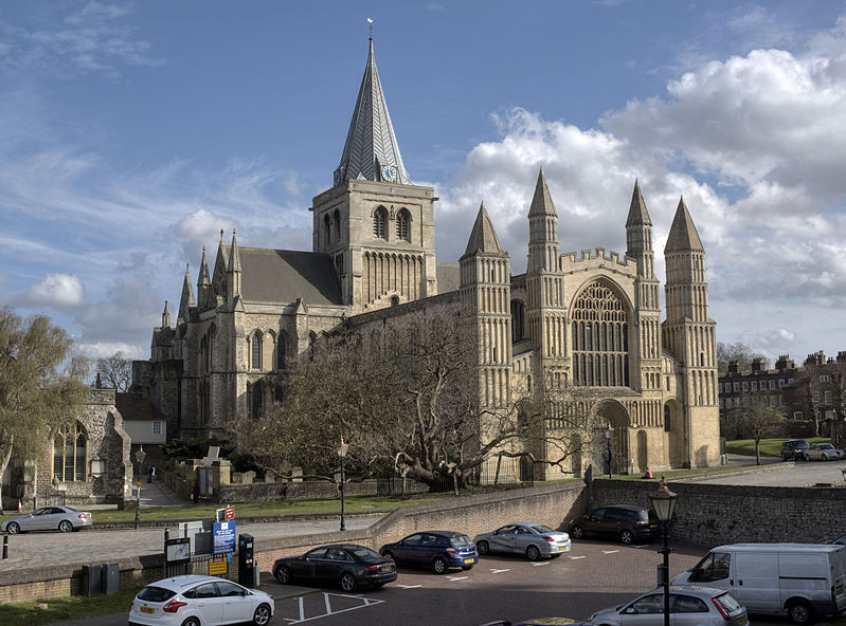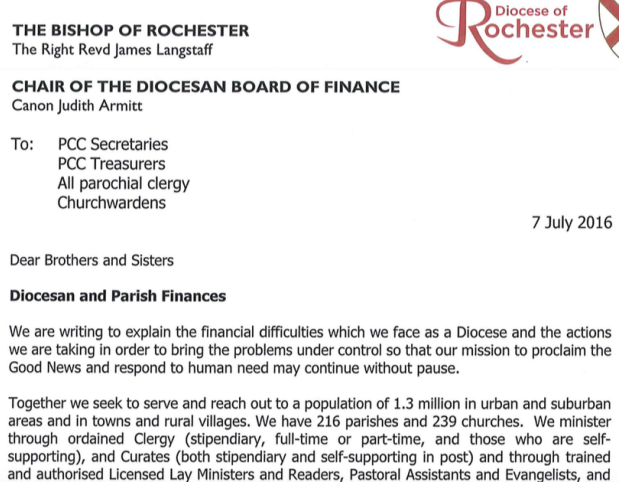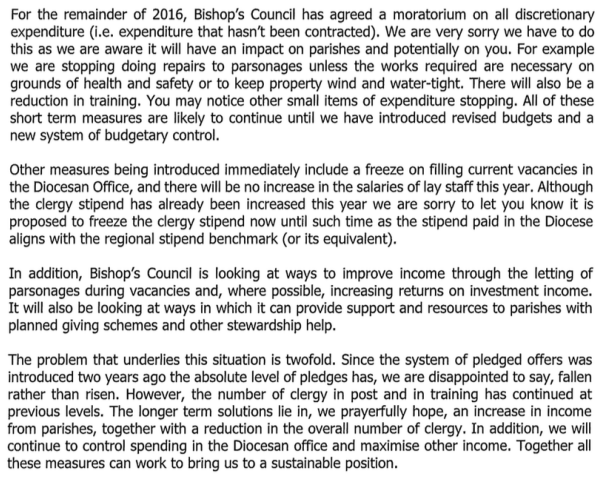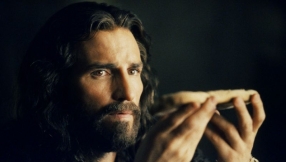
A historic diocese in the Church of England has frozen clergy stipends, abandoned rectory repairs and is planning to rent out unused vicarages to private tenants in a bid not to run out of money.
The diocese, founded by St Augustine in 604 and one of 10 dioceses that date from the seventh century or before, has for "some years" been "spending more than it has received in income," according to the Bishop of Rochester, James Langstaff.
In a letter to clergy, church wardens and parochial church councils, he says that he and the chairman of the diocesan board of finance are explaining "the financial difficulties which we face as a diocese".
Langstaff says Rochester has been drawing on reserves built up over many years. The accounts for last year show a deficit between spending and income of £604,000.
Langstaff says: "This means that our present position is worse than expected because, while this has also been funded from reserves, those general reserves are now almost exhausted."
He warns that it is "essential" the diocese moves back to a situation where spending is no more than income.
The agreed deficit budget of £557,000 for this year will also be exceeded without "significant" action, he warns, saying: "The remaining reserves are not sufficient to fund this deficit."
As a result, all "discretionary" spending will now stop. No more vicarages or rectories will be repaired unless necessary on health or safety grounds, or to keep wind and water out. Training will be cut, all vacancies are being frozen and clergy stipends are being frozen. When parishes are vacant, the vicarages are to be let out to try and make extra cash.
"The longer term solutions lie in, we prayerfully hope, an increase in income from parishes together with a reduction in the overall number of clergy."
The average cost of a priest is £60,000 per year. At the same time, parishes have been giving £230,000 less than is needed this year. If each churchgoing Anglican in Rochester gave an extra 25p a week, the diocese would receive an extra £331,500.
The Rochester diocese serves a population of 1.3 million and has 239 churches in 216 parishes. Resourcing this ministry requires skill, expertise, safeguarding provision, legal and other services.
"These are challenging times ahead for the diocese as a whole, and all of us, both lay and ordained, have a shared responsibility to respond to the challenges that are now before us if we are to continue to grow God's Kingdom in this place," says Langstaff.
Rev Peter Ould, a banking consultant who is a priest in the Canterbury diocese, told Christian Today: "If we take the letter at face value it seems to indicate that the diocese has consistently run a large deficit for a number of years with no serious attempt made until now to remedy that situation. To wait until the coffers are actually empty before you put in even the limited kind of cash flow management measures that the diocese say they have now implemented, strikes me as irresponsible. It's certainly the kind of behaviour that might, in the commercial world, lead someone who was responsible to consider very carefully their position."
Christian Today has reached out to the Church of England for a comment.
 











